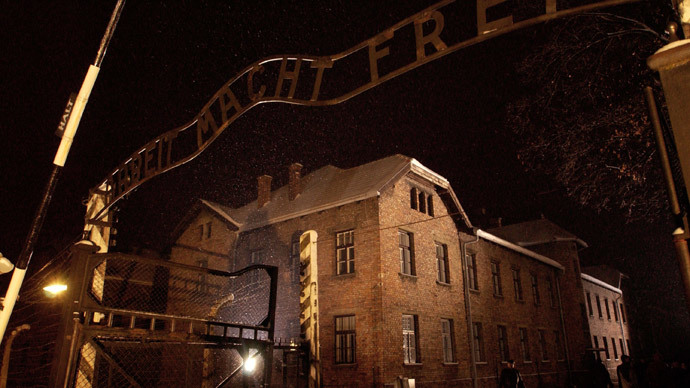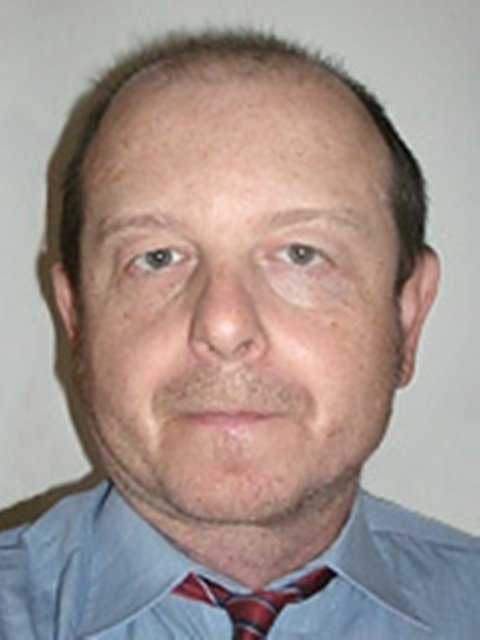Auschwitz memorial: Solemnity turned into a diplomatic snub

Among issues like the Paris attacks, the news Russian President Vladimir Putin was not invited to the 70th Anniversary of the Liberation of the Nazi death camp in Auschwitz Poland is being taken as a sign of a deepening rift between Russia and the West.
It had wide coverage from leading news networks including Bloomberg, Reuters, Associated Press and The New York Times among others. However, despite the Polish government's denials of a snub that were dutifully covered in the media it was rather interesting why nobody dug deeper into the matter beyond official media releases.
As reported, both the Polish Government and the Auschwitz Commemoration officials denied sending out invitations to anyone including Russia but mere information notes about the event to other EU countries and financial contributors to the Auschwitz Foundation, making it look like an event at a membership-only night club. As of today, the preliminary list of attendees and invitees includes President François Hollande of France, President Joachim Gauck of Germany, President Heinz Fischer of Austria, King Philippe of Belgium, King Willem-Alexander of the Netherlands and Crown Prince Frederik of Denmark and Petro Poroshenko, oligarch-turned-President of Ukraine whose rise to power was initiated by an extreme-rightist coup last February, but not the leader of the nation whose forces liberated the camp.
In May 2014, the Polish newspaper Rzeczpospolita ( Premier: ws. zaproszenia Putina na rocznice w Oswiecimiu byłbym ostrozny) reported that Putin's attendance at the 70th Anniversary of Auschwitz’s liberation is a political liability to the center-right Platforma Obywatelska (Civic Platform) (PO) ruling party's grip on power in the upcoming Polish elections.
"Should there be an invitation sent to President Putin? I would have to be very careful and reserved with that. We still don't know how the situation in Ukraine and Russo-Ukrainian relations will develop," Donald Tusk, Polish Prime Minister (PO) was quoted in Rzeczpospolita's piece.
Despite the Polish economy's deep structural problems that were not being addressed, the PM decided to make a strategic move to capitalize on deeply seething anti-Russian sentiment as a game winner in the elections.This strategy continues despite recent change at the helm of the Ministry of Foreign Affairs (MSZ) from a die-hard neocon and architect of Polish involvement in the revolution in Ukraine Radek Sikorski to the PO politician Grzegorz Schetyna. Sikorski was replaced over controversial remarks he made questioning Polish foreign policy he both helped design and implement vis- a-vis the USA and Russia.
According to Rzeczpospolita " How Poland invited Putin by not inviting him," the MSZ used a diplomatic trick to de-facto not invite Putin to the event by not following diplomatic protocol reserved for events such as this. As a result Dmitry Peskov, Putin's spokesman, confirmed that Mr. Putin will not be attending the ceremony, but denied that it was connected with any kind of diplomatic snub.
Symbolism of an event representing the end of the world's first industrial scale death camp that had seen over 1.5 million perish including and not limited to Poles, Jews and Soviet POWs was effectively degraded to a point of grotesque political machinations.Putin's actions on Crimea that started a set of international sanctions and what many experts believe is a concerted effort to drive oil prices, has been condemned by the international community as they violate both bilateral and multilateral treaties Russia signed in the past. However, the historical legacy of what Russians call the "Great Patriotic War" has been put beyond the reach of the political and expendable, until now.
One doesn't have to like Putin or even respect him, but one cannot forget the enormous sacrifice the Russian people paid in WW II, despite ever growing Eastern European revisionism; it has a place in history as one of the greatest triumphs over the ultimate evil of Nazism. The Polish government's game over invitations snubs not Putin but the whole Russian nation that sees the victory in 1945 as one of the most important founding blocks of its identity, which is not surprising when price paid exceeded 24 million of its citizens. The effect of the event's politicization is such that Poland has made itself look ungrateful for its liberation from Nazi occupation that was paid in lives of over half a million Red Army soldiers.
Naturally Polish existence in the Soviet sphere of influence that followed made many Poles conclude Communism was the same as Fascism in its occupying effect, but historically and factually it is false as both systems did not represent an equal threat to Polish nationhood or its physical survival. The fact that Poland now proclaims itself a free and democratic country is the best proof of that. At the same time one cannot help but notice an historical irony in the new age of NATO expansionism. The industrial extermination of millions that took place on Polish soil gave birth to a very strong "Nigdy Wiecej": Never Again sentiment in Polish society that itself paid with over 6 million lives of its citizens.
However the new reality of "free and democratic" Poland produced the presence of CIA black site torture camp 60 years later as direct and as cynically ironic an outcome of foreign policy subordinated to the whims and requirements of a foreign superpower. In the end the country that sends its troops to faraway lands such as Iraq and Afghanistan as part of the so-called pacification action should look no further than its own history and the rhetoric of those it was oppressed by in the past to see what it looks like. The moral judgment of WWII and its outcome is as constant as there is always plenty of blame to go around for the ones who wish it to revisit it whether on the barricades of Kiev under Bandera's flags, Humvees in Iraq, or in the skies over Yugoslavia or Libya. Hypocrisy in international relations is often a sign of weakness by those who are unwilling or unable to live by the standards they preach while invoking historical amnesia as a tool of instant absolution.
The 70th Anniversary of Auschwitz Liberation is now officially turned into a historical Disneyland of political expediency where PR prerogatives take precedent over decency and solemn remembrance. The memory of Auschwitz and what transpired there should have been left alone for future generations as a warning to humanity and not used as a tool of failed policy to contain and diminish Russia. There is a Polish word that characterizes the event even better than the ironically cynical sign on the gate of the camp: "Arbeit Macht Frei" (Work sets you free) that was installed by the camp creators as a ruse to the ones who entered it. It is "Hanba": Shame. The victims of Auschwitz deserve better than this.
Derek Monroe for RT.
Derek Monroe is an American independent journalist and US Foreign Policy analyst based in Illinois.
The statements, views and opinions expressed in this column are solely those of the author and do not necessarily represent those of RT.
The statements, views and opinions expressed in this column are solely those of the author and do not necessarily represent those of RT.













